Shows
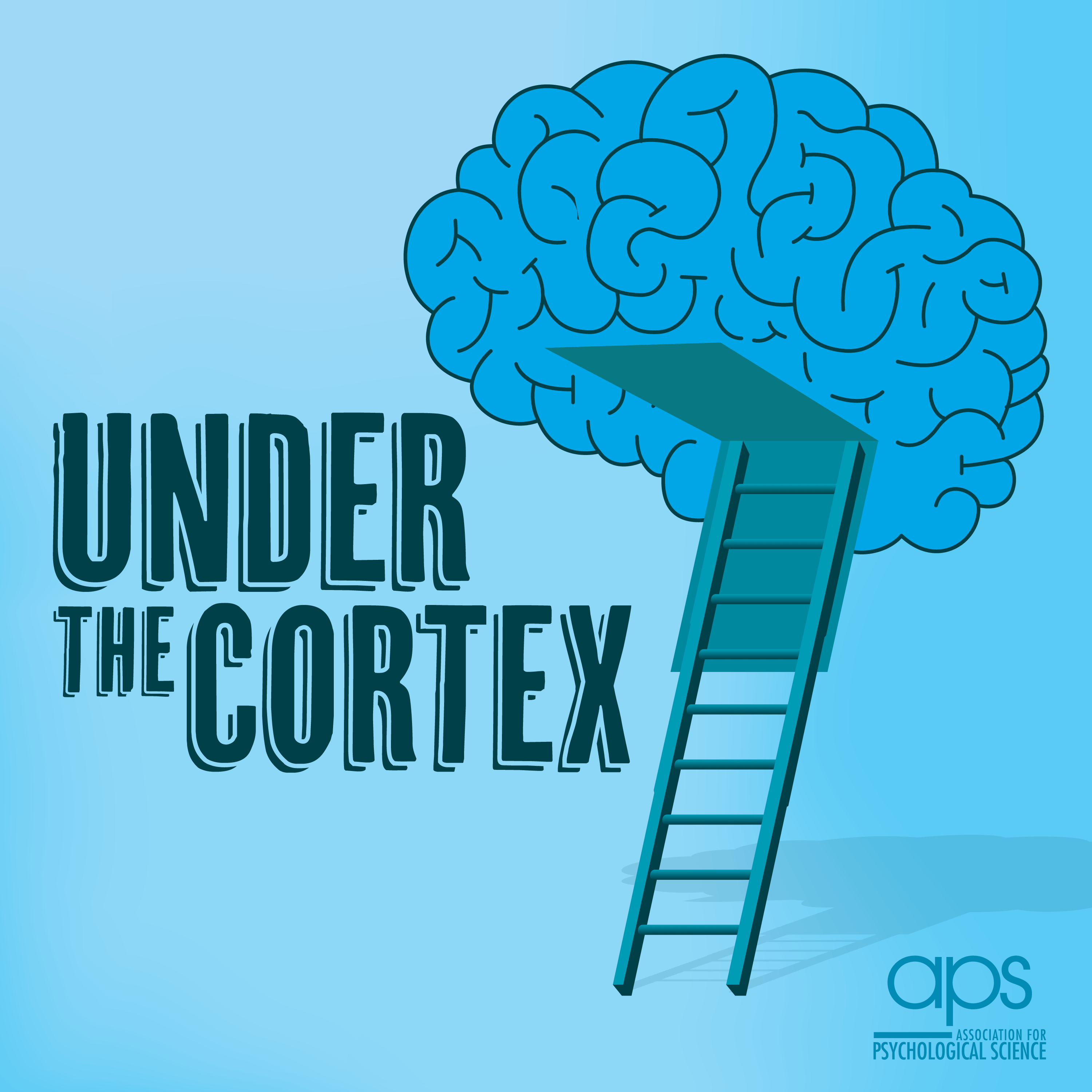
Under the CortexHow Our Brains Grasp FacesFrom the earliest months of life, we rely on faces to help us navigate the world. They tell us who’s safe, who’s familiar, and whether they’re paying attention to us. But do our responses to faces develop gradually as our brains mature? Or are we born prewired to lock onto the human face. In this episode of Under the Cortex, cognitive scientists Rebecca Saxe of MIT and Heather Kosakowski of Harvard University join host Scott Sleek to discuss their groundbreaking findings, published in Current Directions in Psychological Science, about the development of the brain’s face-processing network...
2025-08-0730 min
Under the CortexThe Cost of Efficiency: Exploring Doubling-Back AversionWhy do we avoid retracing our steps—even when it helps us reach our goals faster? In this episode of Under the Cortex, host Özge Gürcanlı Fischer-Baum speaks with Kristine Cho and Clayton Critcher from the University of California, Berkeley about their latest research on doubling-back aversion: the tendency to resist more efficient paths if they require undoing prior effort.
Across four studies involving performance tasks and virtual navigation, Kristine finds that people often choose less efficient strategies simply to avoid feeling like their past actions were a waste. This aversion, while related to the sun...
2025-07-2428 min
Under the CortexTime Warped: How Repetition Distorts Our Sense of DurationWhy do familiar experiences sometimes feel like they happened longer ago than they actually did?
In this episode of Under the Cortex, host Özge Gürcanlı Fischer-Baum speaks with Brynn Sherman from the University of Pennsylvania about her recent study published in Psychological Science, the flagship journal of the Association for Psychological Science. Sherman's research uncovers a surprising illusion: repeated experiences, which are more vividly remembered, are often perceived as having occurred further in the past than they did.
Through a series of experiments, Sherman and her colleague Yousif demonstrate that this distortion in time perce...
2025-07-1015 min
Under the CortexTwo Maps in the Mind: How the Brain Stores What We Know About OthersHow does your brain keep track of the people in your life—not just who they are, but where they are in relation to you and to each other?
In this episode of Under the Cortex, Özge Gürcanlı Fischer-Baum talks with Robert Chavez from the University of Oregon about his new findings published in Psychological Science, the flagship journal of the Association for Psychological Science. His research shows that our brains rely on two separate systems to encode person-knowledge: one that maps others in the broader world (allocentric), and another that maps them in relation to oursel...
2025-06-2629 min
Under the CortexBridging Research and Editorial Vision: A Conversation with Arturo HernandezHow do the roles of researcher and editor inform each other? What can this intersection tell us about the future of psychological science?
In this episode of Under the Cortex, Arturo Hernandez, Professor of Psychology at the University of Houston and editor for Perspectives on Psychological Science, joins host Özge Gürcanlı Fischer Baum to reflect on the dynamic relationship between scientific discovery and scientific communication. Drawing from his research on bilingualism and brain plasticity, Hernandez shares how his experiences in the lab and at the editor’s desk have shaped his views on innovation, interdi...
2025-06-1227 min
Under the CortexReal-Time Research: How the Experience Sampling Method Is Changing PsychologyHow do you design a study that captures human experience as it unfolds in real time? In this episode, Under the Cortex explores the Experience Sampling Method (ESM), a powerful approach for studying psychological processes. Host Özge Gürcanlı Fischer-Baum is joined by Jessica Fritz from Osnabruck University, and Marilyn Piccirillo from the Rutgers Addiction Research Center and Brain Health Institute, who are among the coauthors of a new article published in Advances in Methods and Practices in Psychological Science. The paper outlines ten key design and implementation considerations for ESM studies, helping researchers apply this method with clarity, rig...
2025-05-2925 min
Under the CortexWhy Do Emotions Hijack Our Decisions? The Neuroscience of ImpulsivityWhy do some people struggle to control their actions when emotions run high? What happens in the brain when impulsive decisions take over? Why do some brains lose control under high arousal, while others stay composed?
In this episode of Under the Cortex, host Özge Gürcanlı Fischer-Baum speaks with Matthew V. Elliott from the University of California at Berkeley. Elliott’s study published in APS’s journal Clinical Psychological Science explores the science of emotion-related impulsivity —a trait linked to psychiatric disorders, aggression, and even suicidality. Fischer Baum and Elliott discuss how a new model of brain func...
2025-05-1528 min
Under the CortexBeyond Words: Why TalkBank is Crucial for Spoken Language ResearchMost linguistic datasets focus on written text, but what about the way we actually speak? TalkBank, the world’s largest open-access repository of spoken language, is helping researchers understand everything from child development to dementia, bilingualism, and even classroom learning.
In this episode of Under the Cortex, host Ozge Gurcanli Fischer Baum speaks with Brian MacWhinney from the Carnegie Mellon University, who recently published an article in APS’s journal Current Directions in Psychological Science. MacWhinney, the creator of TalkBank, highlights how spoken language research is transforming our understanding of psychology and communication. The conversation evolves into the d...
2025-05-0127 min
Under the CortexEnsuring Research Validity: A Checklist for Stronger ScienceScientific credibility depends on valid research. But with growing concerns about replication failures and questionable research practices, how can scientists ensure their findings stand up to scrutiny?
In this episode, Under the Cortex explores the VALID checklist, a newly developed tool that helps researchers systematically assess the quality of their studies. Özge Gürcanlı Fischer Baum speaks with Susanne Kerschbaumer from the University of Vienna and asks how the checklist offers tailored guidance for different types of research designs. Kerschbaumer explains how the study published in APS’s journal Advances in Methods and Practices in Psychological Science addres...
2025-04-1715 min
Under the CortexYoung Minds, Smart Strategies: How Children Decide When to Use External Memory AidsDo young children prefer to rely on their memory, or do they take the easier route and use external aids like lists and reminders? How do they decide when to put in the mental effort and when to lean on available tools?
In this episode of Under the Cortex, host Özge Gürcanlı Fischer Baum teams up with Zsuzsa Kaldy from the University of Massachusetts Boston. They discuss Kaldy’s study published in APS’s journal Psychological Science addressing how children balance memory with external help. The conversation evolves into what these findings reveal about cognitive development, and cult...
2025-04-0323 min
Under the CortexUnderstanding Addiction: A General Liability or Unique Disorders?Is there a single explanation that accounts for all addictive behaviors, or is the reality more complex? How can quantitative classification methods help uncover the nuances of substance dependence?
In this episode, APS's Özge Gürcanlı Fischer Baum speaks with Ashley Watts from Vanderbilt University about her recent research article in Clinical Psychological Science. They discuss how simple explanations to addictive behavior – like the General Addiction Liability theory – may be appealing for a unified treatment approach, but a deeper, more quantitively rich dive into the data draws a more heterogenous picture. The paper argues that addiction follows a more d...
2025-03-2023 min
Under the CortexAddressing Selection Bias in Disparities ResearchPsychological research often focuses on disparities, but how do the populations studied impact the reliability of findings?
In this episode of Under the Cortex, Özge Gürcanlı Fischer Baum hosts Wen Wei Loh and Dongning Ren who recently published an article on this topic in APS’s journal Advances in Methods and Practices in Psychological Science. They discuss how non-representative samples can influence study conclusions and highlight solutions for strengthening study validity.
If you're interested in learning more about this research, visit psychologicalscience.org.
Send us your thoughts and questions at underthecortex@psychologicalscience.org
2025-03-0623 min
Under the CortexBeyond Focus: How Attention Shapes Learning Differently for Children and AdultsChildren often surprise us with the details they remember—sometimes even better than adults! But what if their ability to learn comes not from focus, but from a broader, less selective attention? This episode unpacks research showing that while adults learn best when paying attention, children (ages 7-9) absorb information just as well, even when it’s irrelevant to their task. Could this be the secret behind their incredible learning abilities?
In this episode of Under the Cortex, host Özge Gürcanlı Fischer Baum speaks with Marlie Tandoc from the University of Pennsylvania who recently published an article on...
2025-02-2024 min
Under the CortexDosage Dilemma: Unpacking Meditation App ScienceAlthough meditation apps are gaining popularity, a clear link between usage dosage and intervention outcomes has yet to be established.
In this episode of Under the Cortex, host Özge Gürcanlı Fischer Baum teams up with Simon Goldberg from the University of Wisconsin to explore a critical question: “How does the “dosage” of meditation app use impact mental health outcomes? Drawing from a randomized controlled trial with 662 participants published in APS’s journal Clinical Psychological Science, the conversation examines various ways to measure dosage and how these metrics relate to changes in psychological distress.
If you're intere...
2025-02-0618 min
Under the CortexThe Hidden Cost of Caregiving: Stress, Anxiety and Coping MechanismsAs populations age, the need for informal caregivers is increasing. As individuals step up to provide care for loved ones in need, they face their own mental health challenges.
In this episode, Under the Cortex features Michael Kramer from the University of Zurich who recently published an article on this topic in APS’s journal Psychological Science. Özge Gürcanlı Fischer Baum starts the conversation with questions on the mental health decline of caregivers. Kramer highlights that caregiving doesn’t happen in isolation and discusses how contextual factors such as family conflicts and economic struggles play a signific...
2025-01-2323 min
Under the Cortex2024 in Review: 10 Most Popular Articles from APS JournalsHow do the five love languages hold up to empirical research? How do psychological researchers feel about self-censorship? How does gender equality vary by country globally? Tune in to hear highlights from this year’s most popular research.
In this episode, APS's Özge Gürcanlı Fischer Baum and Hannah Brown take turns describing the most downloaded articles in 2024 from APS’s five major journals. Together, they discussed the topics researchers focused on, the findings they uncovered, and the unique approaches to psychological research they employed.
If you're interested in learning more about this research, visit psychologic...
2025-01-0926 min
Under the CortexBuilding Bridges: Exploring Cooperation in ChildrenWhen children play, how do they develop the essential skill of cooperation? What methods do they use to solve complex problems while working in teams? How do they approach a threshold dilemma when their personal interests are at odds with the team’s objectives?
In this episode of Under the Cortex, host Özge Gürcanlı Fischer Baum speaks with Patricia Kanngiesser from the University of Plymouth. Kanngiesser, who is a cross-cultural and developmental psychologist, highlights the findings from a recent article in Psychological Science and discusses how children learn to navigate teamwork.
If you're i...
2024-12-2624 min
Under the CortexHeart Rates and Step Counts: A Novel Approach to Eating Disorder CareWhat potential do everyday devices, like smartwatches, have in transforming the management and treatment of eating disorders?
In this episode, Under the Cortex explores how commonly used technology, such as heart rate monitors and step counters, can be used to understand binge-eating episodes. APS's Özge Gürcanlı Fischer Baum interviews Qinxin Shi from the University of Utah, whose research is featured in Clinical Psychological Science. Together, they discuss the potential implications of this innovative approach for identifying and treating eating disorders.
If you're interested in learning more about this research, visit psychol...
2024-12-1224 min
Under the CortexMidlife-Onset Alcohol Dependence: Causes and ConsequencesWhat drives the onset of alcohol dependence in midlife? How does it present unique challenges, and what strategies can help when it disrupts the lives of individuals and their families?
In this episode of Under the Cortex, host Özge Gürcanlı Fischer Baum speaks with Lara Khalifeh and Leah Richmond-Rakerd from the University of Michigan, authors of a recent article in Clinical Psychological Science. Together, they discuss the role of aging, life transitions, and retirement as possible contributors to the distinct profile of midlife-onset alcohol dependence.
If you're interested in learning more about this research, visit p...
2024-11-2825 min
Under the CortexToo Many Connections? How Aging Impacts Memory and RecallHow does the brain’s memory function change as we grow older? What recent discoveries are helping us understand these changes better?
In this episode of Under the Cortex, Özge Gürcanlı Fischer Baum welcomes Karen Campbell of Brock University to discuss how aging impacts memory. Campbell shares insights from her recent study in APS’s journal Current Directions in Psychological Science, exploring the hyber-binding hypothesis. The conversation delves into how the abundance of connections in older adults’ mental representations may contribute to memory challenges later in life.
If you're interested in learning more about this research...
2024-11-1422 min
Under the CortexGreen Actions, Brighter Lives: Enhancing Well-Being Through Environmental ActionCan environmentally friendly actions boost personal well-being? Tune in to discover how a sustainable lifestyle offers profound benefits.
In this episode, APS's Özge Gürcanlı Fischer Baum speaks with Michael Prinzing from Baylor University. Prinzing shares findings from a recent research article published in Psychological Science, which highlights the link between well-being and climate action. Together, they discussed how participants from 14 countries incorporated eco-friendly actions into daily routines and how these actions globally offer a unique path to well-being.
If you're interested in learning more about this research, visit psychologicalscience.org.
Send us your t...
2024-10-3122 min
Under the CortexA New Approach to Understanding Psychopathology: Insights from the HiTOP ModelAre traditional mental health diagnoses missing the bigger picture? How can a new model help us better understand and treat mental disorders? What does recent research say about how we categorize psychopathology in youth?
In this episode, APS's Özge Gürcanlı Fischer Baum interviews Miri Forbes of Macquarie University. Together, they address how traditional models like the Diagnostic and Statistical Manual of Mental Disorders (DSM) categorize mental health disorders and explore Forbes’ recent study published in Clinical Psychological Science highlighting the more nuanced and dimensional approach that the emerging Hierarchical Taxonomy of Psychopathology (HiTOP) offers. The strengths and sh...
2024-10-1722 min
Under the CortexNavigating Divisive Conversations: Why We Underestimate the BenefitsWhy do we shy away from discussing divisive topics like politics and religion? Are our fears of negative reactions justified or off-base?
In this episode, APS's Özge Gürcanlı Fischer Baum speaks with Kristina Wald from the Wharton School at the University of Pennsylvania. Wald shares findings from a recent research article published in Psychological Science, which shows that people often underestimate the benefits of talking about divisive topics, even with those who disagree. The conversation offers insights into why we prefer talking with those who agree with us, and how we can better approach polari...
2024-10-0316 min
Under the CortexFriendship and Diversity: A Path to Stronger Communities?Why do we gravitate towards friends who share our background and identity? How does this affect our sense of community and well-being?
In this episode, APS's Özge Gürcanlı Fischer Baum speaks with Miguel Ramos from the University of Birmingham to discuss his recent study on social cohesion and well-being, published in Psychological Science. They dive into the concepts of homophily and heterophily, exploring how our preferences for similarity and diversity impact our social networks and overall happiness. Tune in as they discuss the implications of embracing diversity and what it means for creating stronger, more cohesive comm...
2024-09-1919 min
Under the CortexWhat Type of Templates Do We Use for Visual Processing? Caricatures Might Be the AnswerIn this episode, Zekun Sun and Chaz Firestone from Johns Hopkins University join Under the Cortex to discuss their new paper in Psychological Science titled “Caricaturing Shapes in Visual Memory.” The conversation with APS’s Özge G. Fischer Baum reviews how our visual system uses templates and exaggerates the basic features of objects in memory. The authors describe a series of experiments that show how visual memory is more complex than previously thought and that visual details in memory are not always lost.
If you're interested in learning more about this research, visit psychologicalscience.org.
2024-09-0518 min
Under the CortexThe Integrity of Psychological Research: Uncovering Statistical Reporting InconsistenciesAccurate reporting in psychological science is vital for ensuring reliable results. Are there statistical inconsistencies in scientific articles?
In this episode, APS's Özge Gürcanlı Fischer Baum speaks with Michele Nuijten from Tilburg University to examine how overlooked errors in statistical reporting can undermine the credibility of research findings. Together, they discuss Nuijten’s research published in Advances in Methods and Practices in Psychological Science and examine practical strategies to enhance the quality of psychological research.
If you're interested in learning more about this research, visit psychologicalscience.org.
Send us y...
2024-08-2218 min
Under the CortexThe Benefits of Everyday Math for KidsAPS’s Özge Gürcanlı Fischer Baum chats with Melissa Libertus from University of Pittsburgh about her new article about interventions to increase math learning in children. They discuss various strategies parents can use to reinforce the development of math skills in everyday life like at the grocery store or using board games.
If you're interested in learning more about this research, visit psychologicalscience.org.
Send us your thoughts and questions at underthecortex@psychologicalscience.org.
2024-08-0828 min
Under the CortexRacial Disparities in Drug Intervention: Culturally Inclusive ApproachesIn this episode, APS’s Özge Gürcanlı Fischer Baum discusses culturally sensitive and inclusive treatments with experts William Stoops from the University of Kentucky Medical Center, along with his colleagues Jardin Dogan-Dixon and Danelle Stevens-Watkins from the University of Kentucky, Paris Wheeler from the University of Cincinnati, and Krystal Cunningham from Boston College.
Together, they examine evidence-based drug treatment studies, highlighting racial disparities in treatment effectiveness, especially how Black participants often experience worse outcomes than White participants. The discussion includes the impact of systemic racism, the opioid versus cocaine overdose epidemics, and the differences between culturally tailor...
2024-07-2521 min
Under the CortexWhen Versus Whether: Gender Differences in LeadershipIn contemporary society, there is a significant rise in the number of women assuming leadership positions compared to past generations. Nevertheless, this raises the question: Do these growing numbers equate to equal access to opportunities? What are the common gender disparities seen in professional environments?
APS’s Özge Gürcanlı Fischer Baum chats with Hannah Bowles from Harvard Business School about her new article reviewing under what conditions differences between men and women might emerge. They discuss how ambiguity and stereotypes can function to exacerbate or minimize differences between men and women.
If you...
2024-07-1120 min
Under the CortexTools to Bolster Executive Function Skills in KidsIn this episode, Philip Zelazo and Ellen Galinsky join Under the Cortex to discuss their new paper in Current Directions in Psychological Science titled “Fostering Executive-Function Skills and Promoting Far Transfer to Real-World Outcomes: The Importance of Life Skills and Civic Science.” The conversation with APS’s Özge G. Fischer Baum reviews the many ways executive functioning skills are used throughout daily life. The authors describe the process they used to involve the community to determine what skills they focused on in their intervention and the intervention’s success.
To learn more about this research, visit psychologicalscience.org.
2024-06-2729 min
Under the CortexNavigating Regret in Decision-MakingIn this episode, Under the Cortex features William Ryan from UC Berkeley and Stephen Baum from Washington University in St. Louis who recently published an article on this topic in APS’s journal Psychological Science.
APS’s Özge Gürcanlı Fischer Baum chats with Ryan and Baum about their new article on how regret impacts risk taking and financial decision making. They also discuss what researchers mean when they talk about logical decisions and how that differs from how it is colloquially used.
If you're interested in learning more about this research, visit psychologicalscience.org.
Send...
2024-06-1320 min
Under the CortexIs Everyone Out to Get Me? Paranoia in Social InteractionsIn this episode, Under the Cortex hosts Michal Hajdúk from Comenius University Bratislava, Sohee Park from Vanderbilt University, and Amy Pinkham from The University of Texas, Dallas about their new paper in Clinical Psychological Science titled “Paranoia: From Passive Social-Threat Perception to Misattunement in Social Interaction.” The conversation with APS’s Özge G. Fischer-Baum starts with what paranoia is in a clinical context and how it differs from the use of paranoia in an everyday context. They also discuss proposed improvements for how to clinically test the social impacts of paranoia.
If you want to know more abou...
2024-05-3023 min
Under the CortexAllergies or Sickness? Unraveling the Mystery of Concealing Infectious DiseasesWhat do you think when people stay quiet about infectious situations? Is it just a small white lie?
In this episode, Under the Cortex hosts Wilson Merrell to discuss his new paper in Psychological Science titled “When and Why People Conceal Infectious Disease.” The conversation with APS’s Özge G. Fischer Baum reviews what disease concealment looks like and the factors that contribute to when people do it. Merrell highlights that 75% of US adult participants report concealing infectious illness from others and discusses the potential social pressures that might influence this decision.
To learn more about thi...
2024-05-1620 min
Under the CortexDesire Dynamics: Navigating Intimacy and Attraction in RelationshipsMany studies show that sexual attraction in long-term relationships decreases over time. Is this decline inevitable? Are we doomed to be not as into our partners as we were in the honeymoon period? Can we get too close to our partners?
APS’s Özge Gürcanlı Fischer Baum interviews relationship expert Amy Muise from York University to answer these questions. Muise’s recently published work in APS’s journal Current Directions in Psychological Science addresses when and how closeness with our partners forms and declines over time. Muise shares a new development in relationship research on how to maintai...
2024-05-0226 min
Under the CortexShaping Kinder Kids Through Parental ExampleChildren absorb much from their environments. Although the impact of parental conflicts and fights on children has been greatly studied, the impact of positivity has yet to fully be explored.
In this episode, Under the Cortex features Brian Don from the University of Auckland who recently published an article on this topic in APS’s journal Perspectives on Psychological Science.
APS’s Özge Gürcanlı Fischer Baum chats with Don about his new theory, the Interparental Positivity Spillover Theory. Don shares his thoughts on how this theory suggests that when kids witness their parents engaging in warm a...
2024-04-1823 min
Under the CortexParental Engagement Enhances Children’s Therapy Experience and OutcomesAnxiety is common in children. What methods effectively alleviate their anxiety? How do parents influence the treatment process? Can parents positively affect the treatment outcomes?
In this episode, Under the Cortex features Wendy K. Silverman from Yale University School of Medicine and Jeremy W. Pettit from Florida International University who have recently published an article on this topic in APS’s journal Clinical Psychological Science.
Özge Gürcanlı Fischer Baum starts the conversation with the history of anxiety and therapy in children. Silverman highlights how our current understanding and approach to the mental well-being of childre...
2024-04-0422 min
Under the CortexTwisted Tales: Unraveling the Surprising Benefits of IronyUsing irony is a common practice in everyday speech. What’s the main purpose of doing so? What skills are necessary to best understand irony?
In this episode, Under the Cortex features Penny Pexman from Western University. The conversation with Özge Gürcanlı Fischer Baum raises questions about the cognitive, social and emotional benefits of verbal irony. According to Pexman’s research published in APS’s journal Current Directions, cognitive flexibility and emotion recognition are crucial aspects that underlie the processing of sarcastic speech. Despite its reputation of being a negative practice, verbal irony shapes social relationships and enhanc...
2024-03-2118 min
Under the CortexWhat Comes Next? The Joy of Anticipating MelodiesAre you passionate about music? As we explore new songs, part of the excitement comes from successfully predicting their outcomes, as suggested by scientific research.
In this episode of Under the Cortex, APS’s Özge Gürcanlı Fischer Baum hosts music researchers who delve into the rewarding experience of accurately predicting tunes. Nicholas Kathios and Psyche Loui from Northeastern University, along with Matthew Sachs from Columbia University, discuss their recently published article in Psychological Science. The group explores the underlying mechanisms behind music enjoyment and melody anticipation.
If you're interested in learning more about this researc...
2024-03-0722 min
Under the CortexCouples Who Laugh Together, Stay TogetherHave you ever found yourself wondering if someone you're interested in feels the same way about you? If they laugh at your jokes, recent research suggests that it might be a sign that they're into you.
In this episode, Under the Cortex hosts Norman Li and Kenneth Tan from Singapore Management University about their new paper in Psychological Science titled “The role of humor production and perception in the daily life of couples: An interest-indicator perspective.”
APS’s Özge G. Fischer-Baum kicks off the discussion by asking questions about how humor plays a part in building...
2024-02-2213 min
Under the CortexCommunity Engagement in Psychological ResearchWhat are the important considerations that researchers should take when they work with underrepresented communities?
In this episode, Under the Cortex hosts Patricia Rodriguez Espinosa and Luz Garcini in follow up to their thought-provoking appearance in APS’s Science for Society Webinar, “Helping Underrepresented Populations Through Community-Oriented Research.” Dr. Rodriguez Espinosa, PhD., MPH, is a native of Habana, Cuba, and a clinical psychologist by training. She is an Assistant Professor in the Department of Epidemiology and Population Health and also serves as the Associate Director of Research for the Office of Community Engagement at Stanford Medicine. The goal of...
2024-02-0826 min
Under the CortexInformation Avoidance in the Modern Age
In this episode, Under the Cortex hosts Jeremy Foust from Kent State University about his new paper in Perspectives on Psychological Science titled “Information Avoidance: Past Perspectives and Future Directions.” The conversation with APS’s Özge G. Fischer-Baum starts with defining information avoidance and then explores some of the factors that impact whether someone will choose to avoid information. Foust and Fischer-Baum also dive into me-search and how social media has or has not impacted the ways we take in information.
If you want to know more about this research, visit psychologicalscience.org.
2024-01-2522 min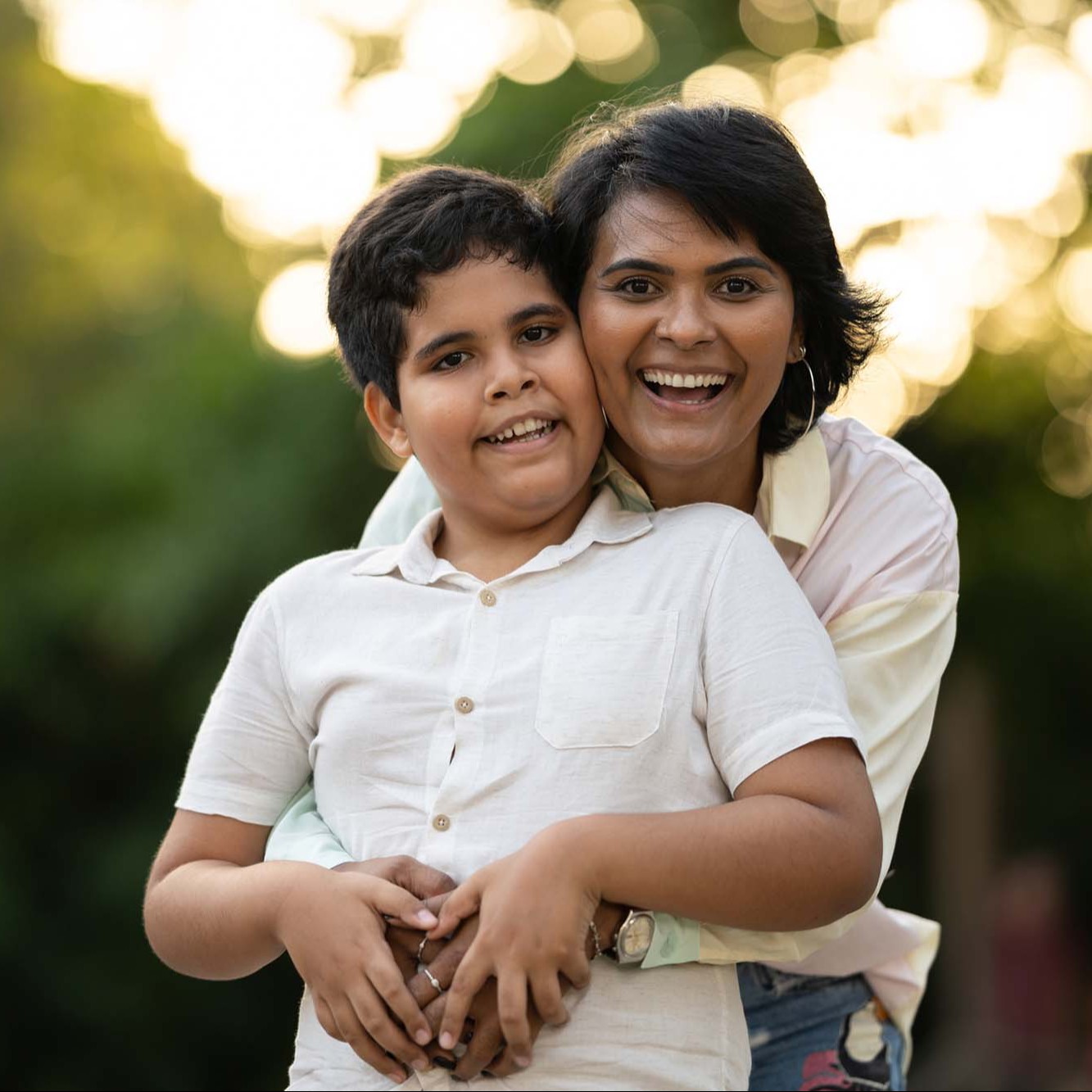
Under the CortexLinking Developmental Delays and Parenting Strategies With Inclusivity in MindHow do parents adjust their behavior in the context of neurodiversity?
Under the Cortex features Alexandra Sullivan (University of California, San Francisco), a psychological scientist who studies the link between parenting and developmental delays. In this episode, Sullivan and APS’s Özge G. Fischer-Baum discuss parenting strategies with an inclusive approach.
Sullivan also recently published an article on this topic in APS’s journal Psychological Science.
If you want to know more about this research, visit psychologicalscience.org.
2024-01-1118 min
Under the CortexIs Our Early Attachment Our Destiny? Finding the Link Between Attachment Patterns and Personality Disorders
Attachment is a recent popular topic that has entered the public eye, but psychological researchers have been investigating attachment patterns for decades. What is the relationship between early attachment personality disorders? Is there an overlap?
APS’s journal Clinical Psychological Science features an article with a new perspective into how attachment style can be linked to personality disorders. In this episode of Under the Cortex, the two psychological scientists who wrote the article, Madison Smith from Northwestern University and Susan South from Purdue University talk with Özge Gürcanlı Fischer Baum about the role of...
2023-12-2820 min
Under the CortexGuilty as Charged: How We Contribute to Polarizing Content on Social MediaWhat goes viral social media and why? Do people value information-based content less favorably than misinformation? Why do we click more on polarizing content than neutral information?
In this episode, Under the Cortex hosts Dr. Steven Rathje from New York University. Rathje’s research explores what people think about social media content and what motivates their online behavior.
Rathje and APS’s Özge G. Fischer-Baum explore the implications for societal change, in-group and out-group behavior, and emotional choices on internet usage.
If you want to know more about this research, visit psycholog...
2023-12-1425 min
Under the CortexGetting Your Research Published: Insights on Academic Publishing with Simine VazireUnder the Cortex biweekly hosts authors of peer-reviewed articles. In this week’s episode, we do things a little differently, take a step back, and explore what happens on the editorial side of scientific publishing.
Simine Vazire, the incoming Editor-in-Chief of APS’s journal Psychological Science, joined Özge Gürcanlı Fischer Baum to discuss her plans to further advance the practices of inclusivity in APS’s flagship journal, she highlighted the current disadvantages in academic publishing in general and said that APS is a leader in supporting psychological scientists. The conversation evolved into topics of writing in English as...
2023-11-3027 min
Under the CortexDo Risky Drinkers Think Differently? Insights From Cognitive ExperimentsWhat is risky drinking? What’s the cognitive profile of risky drinkers? If we know more about how risky drinkers think, is it easier to develop models for preventive measures?
APS’s Özge G. Fischer Baum approaches these questions with a cognitive lens in an interview with Elizabeth Goldfarb from Yale University. Fischer Baum and Goldfarb discuss how risky drinkers generalize and overgeneralize categories differently from the general population. The conversation evolves into ideas about possible interventions for alcohol-use and other substance abuse.
Goldfarb also published on this topic in APS’s flagship journal, Psychological Science...
2023-11-1615 min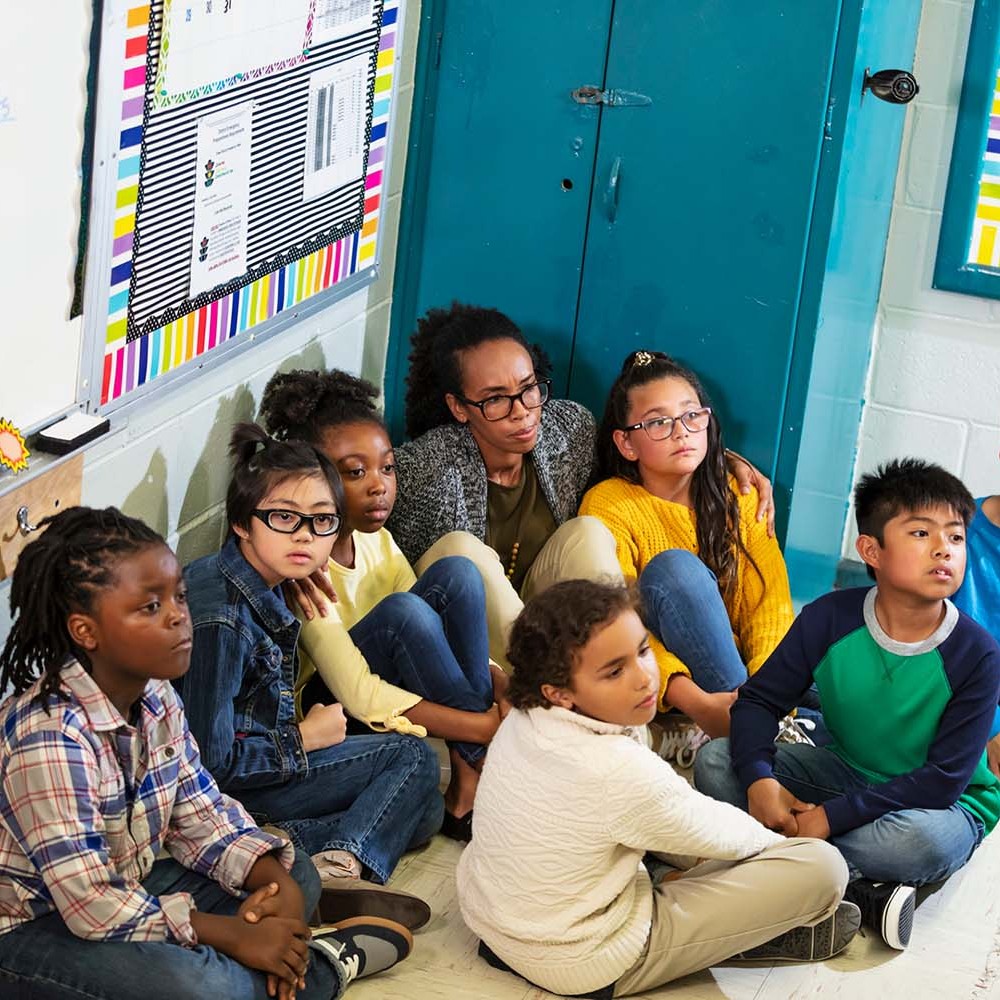
Under the CortexDo Lockdown Drills Create Anxiety? New Research Says NoHow does gun violence affect the youth? What are the developmental outcomes of being exposed to gun violence? Do lockdown drills provide a solution, or do they further create anxiety for children?
In this episode, Under the Cortex hosts Dr. Amanda Nickerson, University at Buffalo, The State University of New York. She highlights the developmental pathways and risk factors for being exposed to gun-related violence. Lockdown drills are on the table for discussion and Nickerson’s research does not find a direct link between the drills and anxiety.
Nickerson also talked about this topic in APS’...
2023-11-0221 min
Under the CortexCautionary Notes: The Science of Trigger WarningsWhat is the logic behind using trigger warnings? Do they improve learning outcomes?
In this episode, Under the Cortex hosts Victoria Bridgland of Flinders University to explore her meta-analysis results on trigger warnings. Bridgland’s meta-analysis indicates that, contrary to popular belief, trigger warnings do not have a negative or positive effect on learning outcomes but do increase anticipatory anxiety.
The conversation with APS’s Özge G. Fischer-Baum evolves into implications for cultural differences and the usage of trigger warnings on social media.
Also check out a related news release on Bridgland’s article at psychologicalscience.org.
2023-10-1923 min
Under the CortexFeeling Young at Heart Comes With Well-Being BenefitsIs it true that you are only as old as you feel? Is age really just a number? Is 40 the new 30?
In this episode, Under the Cortex hosts Markus Wettstein of Humboldt University of Berlin. Wettstein’s research explores the perception of subjective age in adulthood and gender, as well as generational differences in feeling young.
The conversation with APS’s Özge G. Fischer-Baum evolves into implications for health benefits, general well-being, and possible cross-cultural differences. Wettstein also published on this topic in APS’s flagship journal, Psychological Science. The article is titled Younger Th...
2023-10-0511 min
Under the CortexThe Tale of Two Cities: Water Access Influences Human Decision MakingDoes our geographical location shape our thinking? Does water access have an effect on our decision-making habits? Do we choose to live in the moment because of environmental factors?
In this episode, Under the Cortex hosts Dr. Hamid Harati, The University of Queensland, and Thomas Talhelm,University of Chicago. Through their international collaboration, the two scholars explore how our ecological environment can shape our decision-making skills. As they compare two cities in Iran, Yazd and Shiraz, they ask how cultures form based on environmental needs and how water scarcity can be a strong influencer of long-term orientation i...
2023-09-2127 min
Under the CortexLoneliness Across the Globe: A Life-Span ApproachDid you know that loneliness is different from social isolation? Psychologists define loneliness as a subjective concept which is related to one’s own expectations.
In this episode, Under the Cortex hosts Samia Akther Khan, PhD candidate from King’s College London, whose research examines the feeling of loneliness across lifespan. The conversation with APS’s Özge G. Fischer-Baum focuses on the difference between loneliness and social isolation and highlights six key social relationship expectations of older adults: (1) availability of social contacts, (2) receiving care and support, (3) intimacy and understanding, (4) enjoyment and shared interests, (5) generativity and contribution, and (6) being re...
2023-09-0716 min
Under the CortexWendy Wood: It’s Time We Trained Students for Diverse Careers in Psychological SciencePsychology PhDs have skills broadly relevant for teaching, industry, and government. They are integral to producing basic research and evidence-based solutions for policy and industry. Only about half of psychology PhDs are hired in academia, but psychology graduate training in the United States has largely retained the classic graduate training model of a direct path to an academic job. It's time to change that, says APS President Wendy Wood.
2023-08-2409 min
Under the CortexBest Of: Revisiting Episodes on the Myers-Briggs Test, the Grieving Brain, and MoreAt the height of the COVID-19 epidemic in 2020, the Association for Psychological Science joined countless other organizations around the world in turning to podcasts to share findings and conversations. The result is Under the Cortex, which now celebrates 100 episodes in which psychological scientists help us understand some of their most interesting and impactful new research. This special episode is a bit of a greatest hits compilation, featuring clips from six of our favorite episodes to date.
Dan McAdams provides a skeptical deep dive on the Myers Briggs test.
Mary Frances O'Connor discusses what happens in the grieving brain.
A...
2023-08-1021 min
Under the CortexUnderstanding Childhood Adversity Across Time and CulturesScientists usually expect childhood to be nurturing, safe, and characterized by high levels of caregiver investment. However, evidence from history, anthropology, and primatology can challenge this view. Throughout human evolution, children have faced threats and deprivation, at varied levels across space and time. And these varied levels of exposure to adversity—which over time were higher than is typical in industrialized societies—likely favored a high degree of phenotypic plasticity, or the ability to tailor development to different conditions.
Willem Frankenhuis, an evolutionary and developmental psychologist at Utrecht University, and Dorsa Amir, a developmental scientist at the Unive...
2023-07-2717 min
Under the CortexNobody’s Fool: How to Avoid Getting Taken InHow can our habits of thinking make us vulnerable to deception? What characteristics of information make it more likely to manipulate us? And how can we spot deception before it’s too late?
In this episode of Under the Cortex, Daniel Simons and Christopher Chabris join APS’s Ludmila Nunes to answer these questions and more, drawing from their brand new book: Nobody's Fool: Why We Get Taken In and What We Can Do About It. Daniel Simons is a cognitive scientist and professor of psychology at the University of Illinois, where he researches the limits of huma...
2023-07-1321 min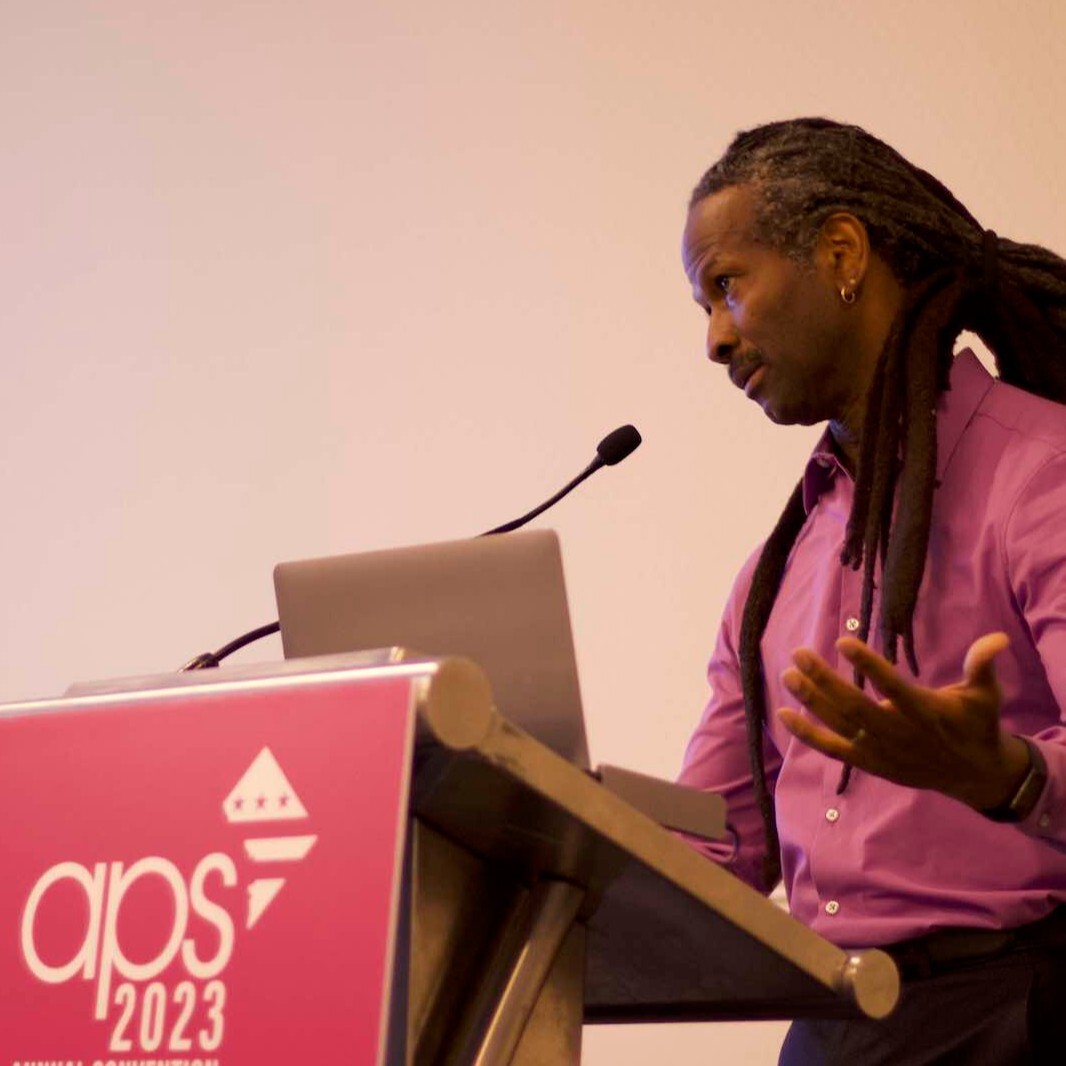
Under the CortexCarl Hart on Clinicians’ Bias Toward Drug Use
Pervasive misconceptions about and bias against drug use in the United States have led to clinical norms that pathologize any use of certain kinds of drugs. This bias has harmful consequences. For instance, conflating substance use with substance disorder is used to justify curtailing certain people’s rights, which has broad consequences. Treating drug use as a brain disease reveals clinician bias. How can these misconceptions, and the actions they lead to, be corrected? And how can researchers and policymakers demystify drug use?
This episode of Under the Cortex features Carl Hart, a neuro...
2023-06-2918 min
Under the CortexBringing Contexts In, Taking Racism Out: How to Improve Cognitive PsychologyCognitive psychology studies universal processes such as memory, decision making, or emotions, for example. However, the theoretical, epistemological, and methodological assumptions that support the field’s longtime focus on studying “cognitive universals” might have resulted in a science of human cognition based on the performance and behavior of people who are predominantly White, English-speaking, and socially dominant. In other words, scientific racism has likely influenced the study of cognition. How can researchers reshape cognitive psychology to become more aware of the roles of culture and context?
Ayanna Thomas is a professor at Tufts University and lead author of an a...
2023-06-1521 min
Under the CortexEndless Love: You’ve Got Ideas About Consensual Nonmonogamy. They’re Probably WrongConsensually nonmonogamous relationships are defined by explicit mutual agreements to have multiple emotional, romantic, and/or sexual relationships. But is there really a type of person who engages in this type of relationship? And are these relationships actually lower in quality compared with monogamous relationships? Research has revealed several misconceptions about consensually nonmonogamous relationships and patterns of how others judge people in these relationships.
In this episode of the podcast, Amy C. Moors, psychologist who researches and teaches about LGBTQ+ issues, consensual non-monogamy, gender, and inclusion in higher education at the Kinsey Institute and Chapman University, demystifies c...
2023-06-0119 min
Under the CortexPsychology’s Role in the Criminalization of BlacknessThe mass incarceration of Black people in the United States is gaining attention as a public health crisis with extreme mental-health implications. Despite Black Americans making up just 13% of the general U.S. population, Black people constitute about 38% of people in prison or jail. What does this have to do with psychological science? Well, historical efforts to oppress and control Black people in the United States helped shape definitions of crime but also mental illness. And, through its research and clinical practices, the field of psychological science might even have contributed to the perpetuation of anti-Blackness.
...
2023-05-1823 min
Under the CortexSilver Linings in the Demographic RevolutionWhile we are fussing about the artificial-intelligence revolution, a demographic revolution may have much more radical consequences: There are more older people than ever in the world. In her last presidential column for the APS Observer, APS President Alison Gopnik, who studies learning and development at the University of California, Berkeley, writes about how psychological science may help us to understand and deal with the challenges that come with this increased longevity. An underexplored approach, she says, involves appreciating our brilliant, fragile young human learners as well as our wise, vulnerable, old human teachers, and then finding creative ways to b...
2023-05-0414 min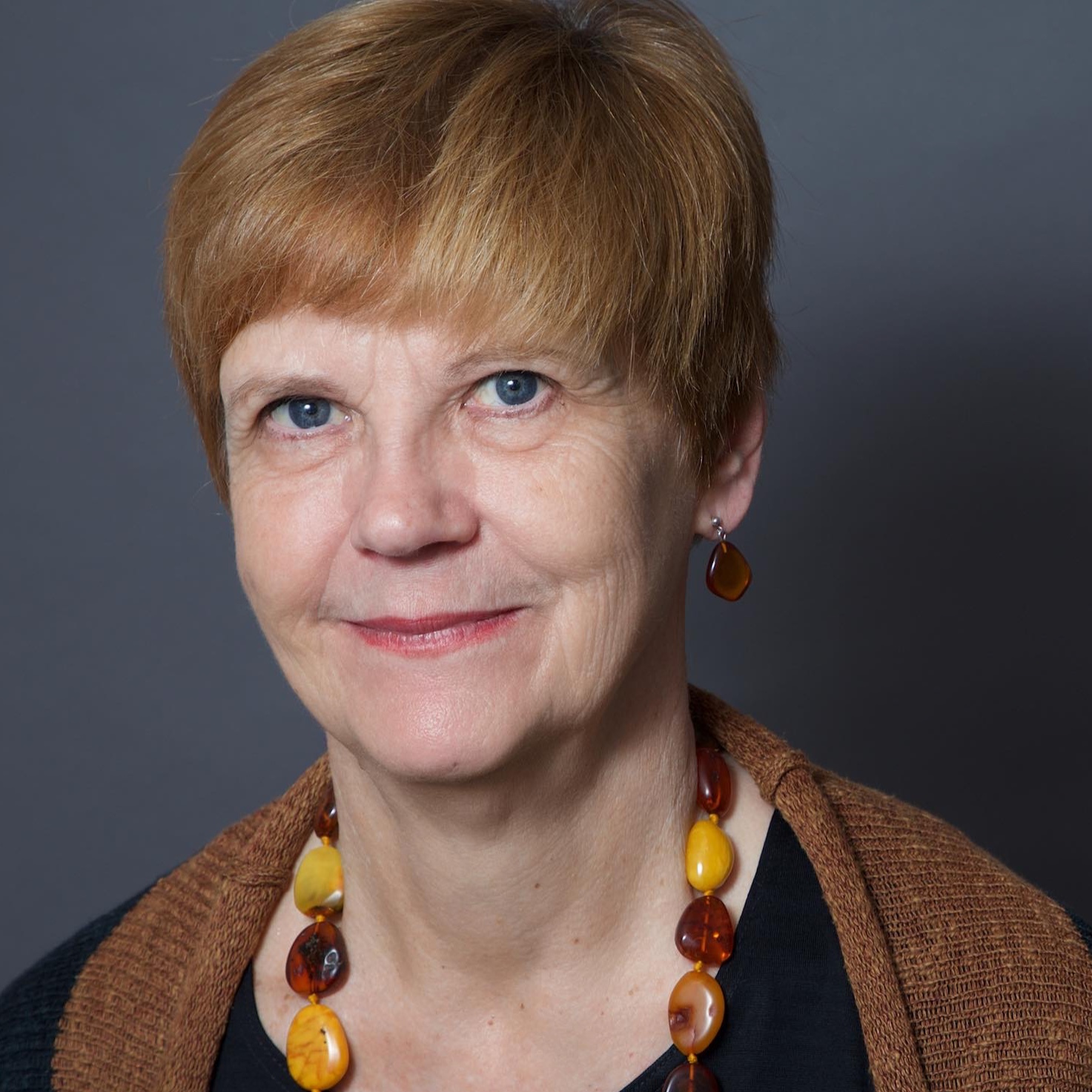
Under the CortexIndustrialized Cheating in Academic Publishing: How to Fight “Paper Mills”A growing problem in research and publishing involves “paper mills”: organizations that produce and sell fraudulent manuscripts that resemble legitimate research articles. This form of fraud affects the integrity of academic publishing, with repercussions for science as well as the general public. How can fake articles be detected? And how can paper mills be counteracted?
In this episode of Under the Cortex, Dorothy Bishop talks with APS’s Ludmila Nunes about the metascience of fraud detection, industrial-scale fraud and why it is urgent to tackle the fake-article factories known as “paper mills.” Bishop, a professor of neurodevelopmental psychology...
2023-04-2033 min
Under the CortexExploration vs. Exploitation: Adults Are Learning (Once Again) From ChildrenHow do you balance innovation and implementation, possibility and practicality? How do you resolve the tension between the lure of the crazy new thing and the safe haven of the tried and true? In her latest presidential column for the APS Observer, APS President Alison Gopnik, who studies learning and development at the University of California, Berkeley, writes about what makes children bad at acting effectively but good at learning, exploration, and discovery and how adults—including cognitive scientists and computer scientists conducting exciting new research—may learn from them. She reads her column in this episode.
2023-04-0613 min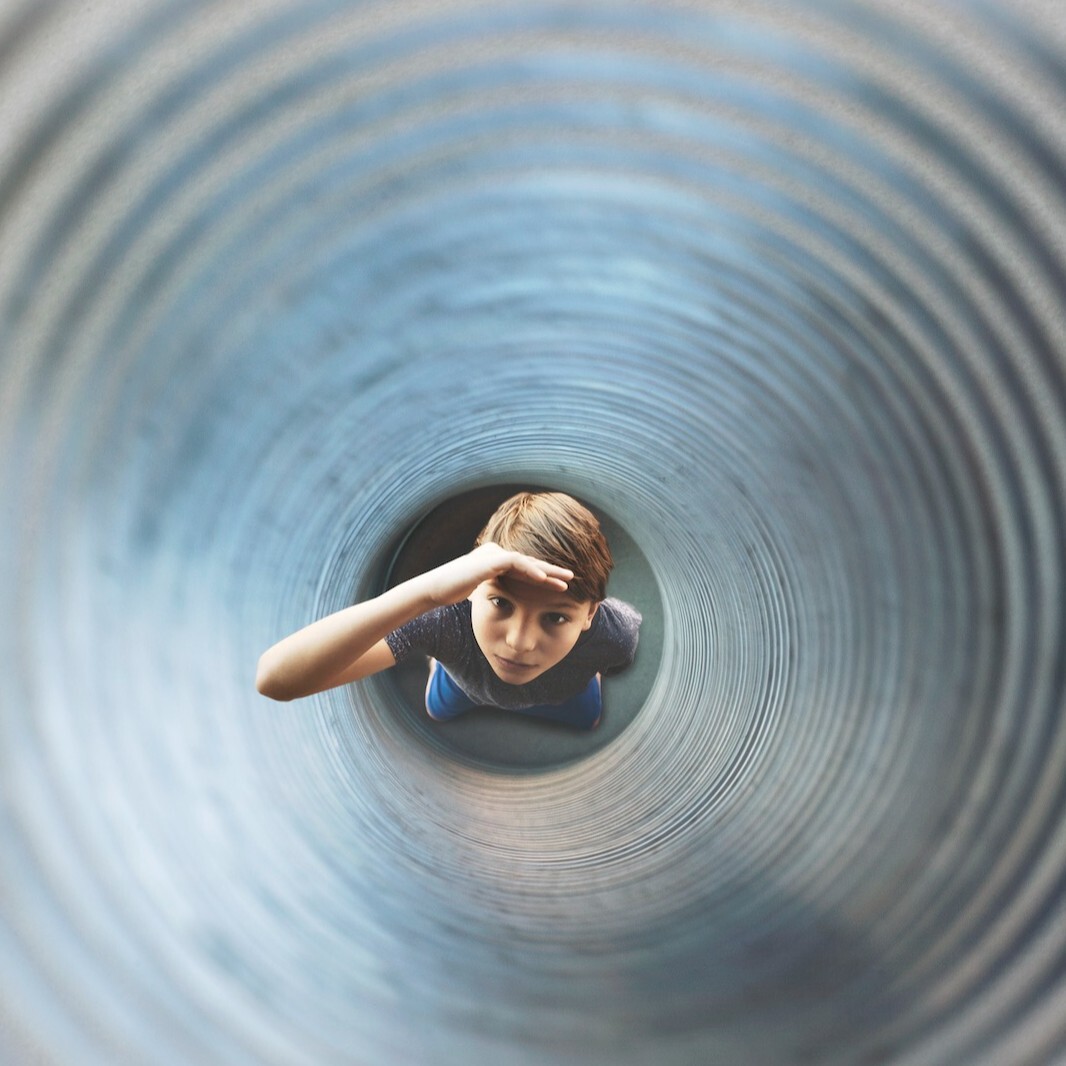
Under the CortexLived Experiences Can Be a Strength. So Why the Bias Against “Me-Search”?Questions often emerge when researchers tend to engage in research on topics that are personally relevant for them. For example, when someone with depression also studies it, should they disclose their personal interest? How is this type of self-relevant research—“me-search,” as it’s popularly known— perceived by the academic and scientific community?
In a recent study published in Clinical Psychological Science, researchers found that more than 50% of participants had conducted self-relevant research. Those who had not engaged in self-relevant research made more stigmatizing judgments of it and its disclosure than did those who did engage in se...
2023-03-2319 min
Under the CortexSpecial Episode II: APS 2023 Spence Awardees on Sharing Minds, the Development of Learning, and Implicit BiasThe APS Janet Taylor Spence Award recognizes APS members who have made transformative early career contributions to psychological science.
Award recipients reflect the best of the many new and cutting edge ideas coming from of our most creative and promising investigators who together embody the future of psychological science.
The APS 2023 Janet Taylor Spence Award for Transformative Early Career Contributions joined Ludmila Nunes to talk about their research and careers. In this episode, the second of two, Julian Jara-Ettinger, Emily Fyfe, and Calvin Lai discussed reading and sharing minds, the development of learning and its prac...
2023-03-0933 min
Under the CortexSpecial Episode I: APS 2023 Spence Awardees on Fresh Starts, Time Perception, and the Well-being of Black FamiliesResearch contributions can be transformative in various ways, such as the establishment of new approaches or paradigms within a field of psychological science, or the development or advancement of boundary-crossing research.
The APS Janet Taylor Spence Award recognizes APS members who have made transformative early career contributions to psychological science.
The APS 2023 Janet Taylor Spence Award for Transformative Early Career Contributions joined Ludmila Nunes to talk about their research and careers. In this episode, the first of two, Riana Elyse Anderson, Ed O’Brien, and Hengchen Dai discussed how to study and improve the well-being and func...
2023-03-0930 min
Under the CortexIs Cheating Just a Symptom (and Not the Cause) of Declining Relationships?Does infidelity predict an unhappy relationship? Or is it the other way around? Can a relationship recover after infidelity?
In a recent study published in Psychological Science, researchers found that relationship functioning starts to decline before infidelity happens and that, in most cases, well-being did not recover in the years following the infidelity. The lead author, Olga Stavrova, a researcher and professor at Tilburg University, explains these findings and elaborates on how they can expand our knowledge about the dynamics of romantic relationships.
To read the transcript, see here.
2023-02-2314 min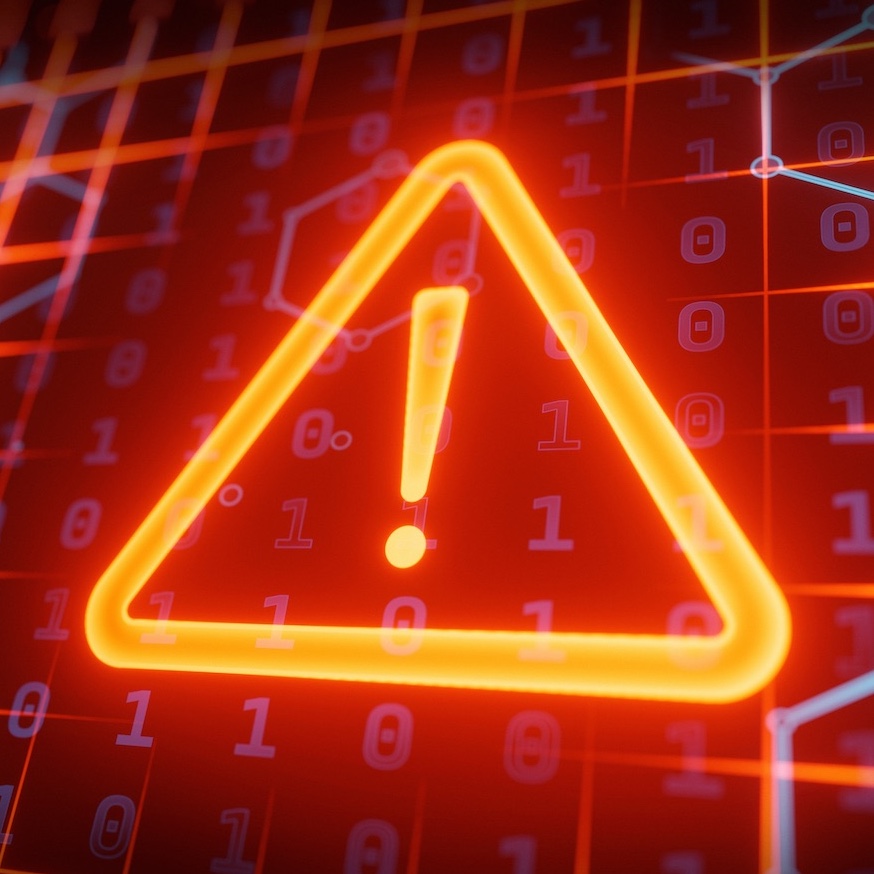
Under the CortexStop Oversimplifying Mental Health DiagnosesDiagnoses often oversimplify complex mental health problems. How can researchers and practitioners avoid oversimplifications, improve research, and provide more effective and customized clinical practices?
A recent article published in Current Directions in Psychological Science presented the advantages of studying mental health problems as systems, not syndromes. The author, APS Fellow Eiko Fried, a psychologist and methodologist at Leiden University, explains this new approach to how we see and classify mental health problems and how mental-health professionals might create better tools to address early risk of certain conditions, such as depression.
To read the transcript, see he...
2023-02-0920 min
Under the CortexA Very Human Answer to One of AI’s Deepest DilemmasImagine that we designed a fully intelligent, autonomous robot that acted on the world to accomplish its goals. How could we make sure that it would want the same things we do? In her latest presidential column for the APS Observer, APS President Alison Gopnik, who studies learning and development at the University of California, Berkeley, writes about how looking at caregivers who raise human children—the parents and grandparents, babysitters and preschool teachers—might help to make sure that robot’s goals align with human goals. She reads her column in this episode.
2023-01-2612 min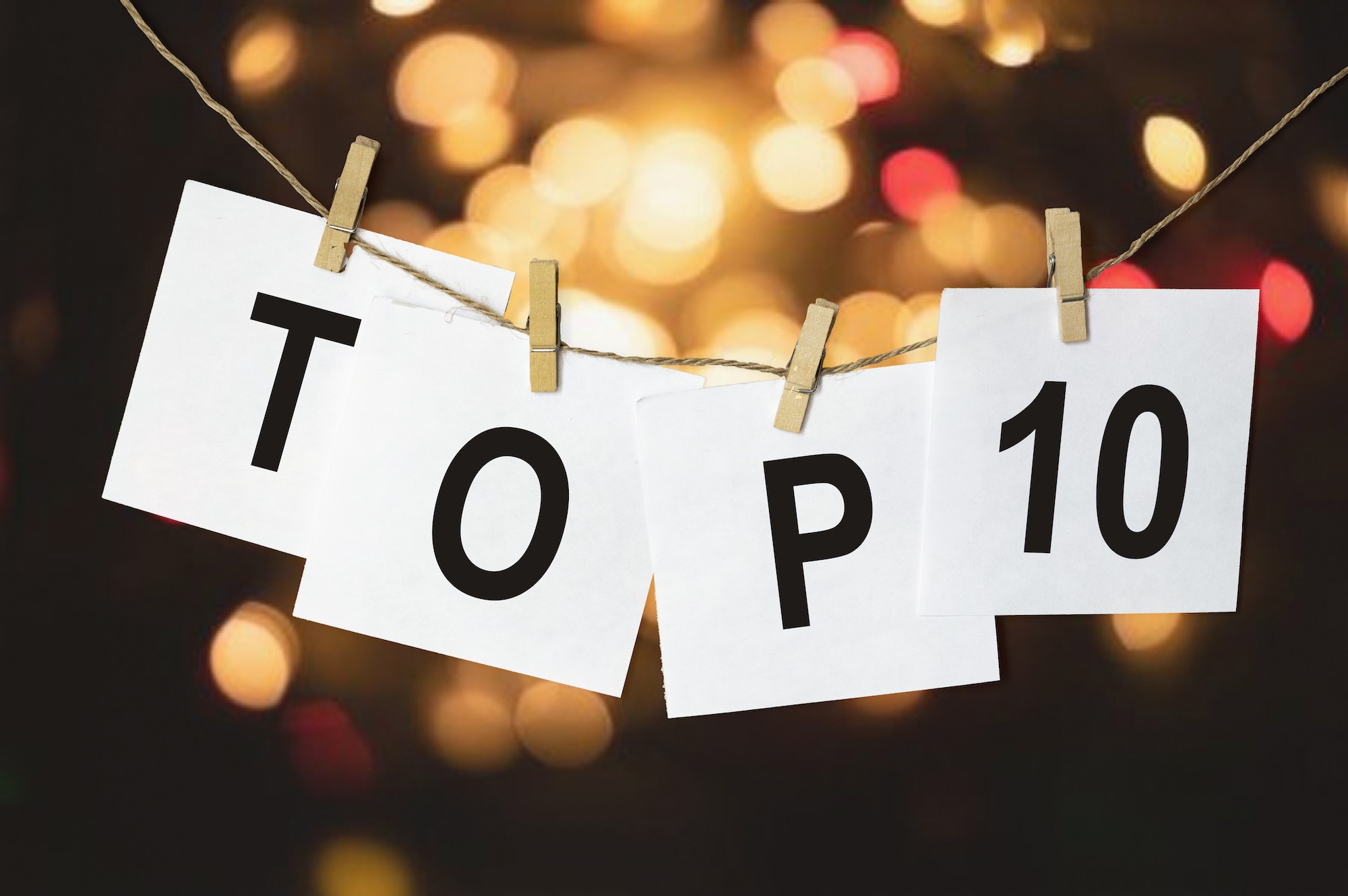
Under the CortexTop 10 Articles of 2022: Opinionated Fetuses! Cheating Spouses! And Much MoreDo fetuses care about what their mothers eat? When do spouses cheat? Does the use of social media predict depression and anxiety? How can we understand and address older adults’ loneliness? Some of the top articles published in the APS journals in 2022 explored these questions and much more. In this conversation, Ludmila Nunes talks with Amy Drew, who heads up APS’s journals team, for a countdown of the most impactful articles published in 2022.
2023-01-1227 min
Under the CortexWhat You Know Changes What and How You SeeCan what we know about an object change the way we see it? Or the way we feel about it? If so, could that be because different brain areas process different features of any given object, such as what we know about its uses?
In this episode of Under the Cortex, APS’s Ludmila Nunes speaks with Dick Dubbelde, a recent postdoc and adjunct professor of psychology and neuroscience at George Washington University, about how quickly and how well we process different objects. “In an environment such as surgery, where small spatial details are super important, or in an...
2022-12-1515 min
Under the CortexChildren, Creativity, and the Real Key to IntelligenceHuman innovation will always be the essential complement to the cultural technologies we create, including artificial intelligence. In her latest presidential column for the APS Observer, APS President Alison Gopnik, who studies learning and development at the University of California, Berkeley, writes about how psychology, and especially child psychology, will play a crucial role in creating and using the technology of the future. She reads her column in this episode.
2022-12-0114 min
Under the CortexFailure and FlourishingIn the final discussion with social psychologist David Myers, a professor of psychology at Hope College in Michigan, APS’s Ludmila Nunes talks with him about the third section of his book, in which he applies his psychological insights to the larger world around us.
Listen to the previous episodes featuring David Myers and his latest book, How Do We Know Ourselves? Curiosities and Marvels of the Human Mind. You’ll get to know more about David’s career and his goals of helping his readers and students think critically, savor the world, and develop a sense of wond...
2022-11-1717 min
Under the CortexWhy Is Everyone Else Having More Fun?David Myers, a social psychologist and professor of psychology at Hope College in Michigan, joined us in the last episode to speak about his latest book, How Do We Know Ourselves? Curiosities and Marvels of the Human Mind. In this episode, he and APS’s Ludmila Nunes discuss the second section of the book, which focuses on who we are, and takes a closer look at a chapter called “Why is everyone else having more fun?”
Read more about David Myers’s new book here.
2022-11-1014 min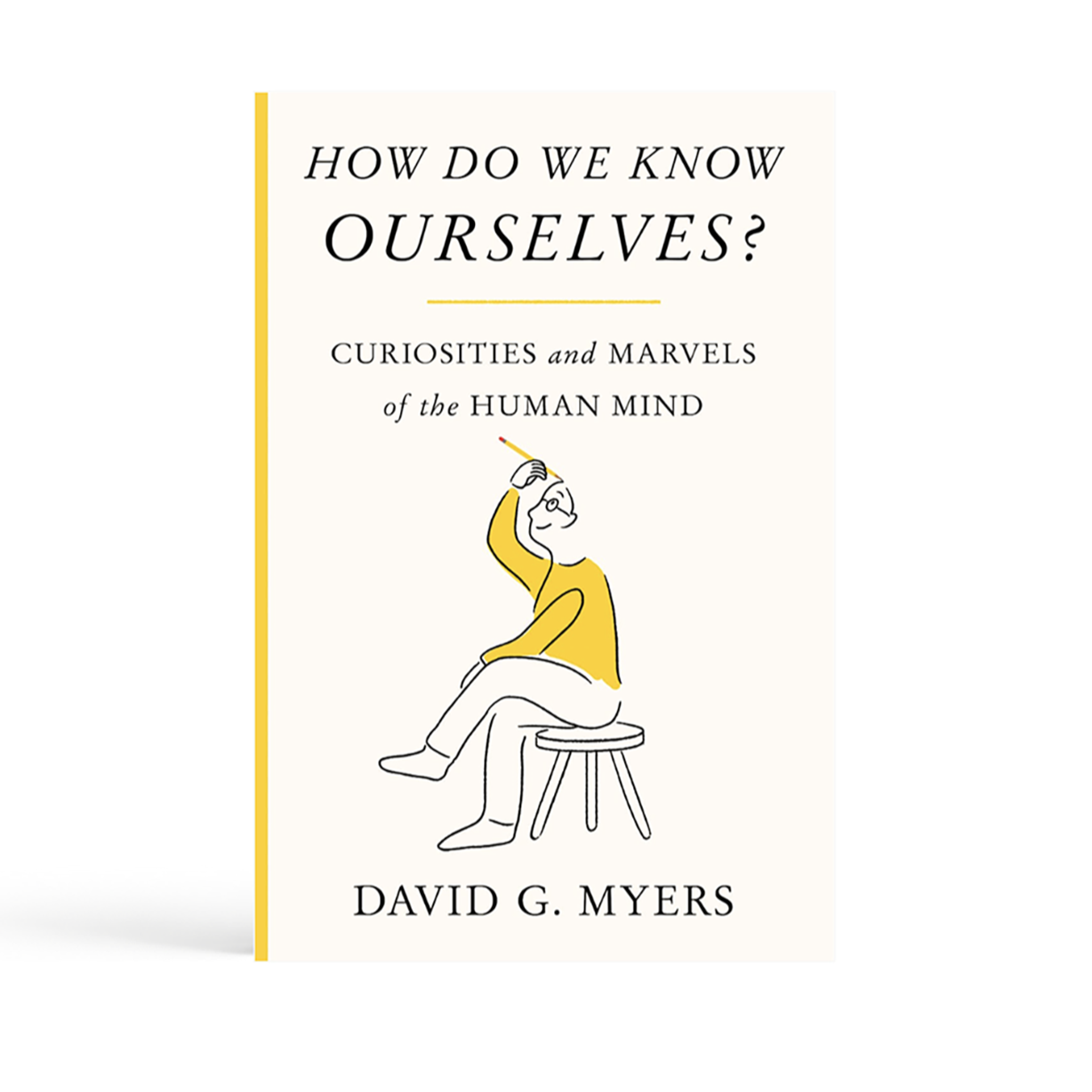
Under the CortexHow Do We Know Ourselves?Social psychologist David Myers, a professor of psychology at Hope College in Michigan, is the author of seventeen books, including psychology’s most widely read textbook. But he doesn’t write only textbooks. For the last several decades, he has translated findings from psychological science for the general public as well, in books on topics ranging from the scientific pursuit of happiness to the powers (and perils) of intuition.
In his new book, How Do We Know Ourselves? Curiosities and Marvels of the Human Mind, Myers presents a collection of short essays on how psychological scienc...
2022-11-0318 min
Under the CortexWhat Music Does to UsWhat is the relationship between music and autobiographical memories? Why do we like the music that we like? And what are the challenges that a psychological scientist studying music might face throughout their career?
Amy Belfi from the Missouri University of Science and Technology joined APS’s Ludmila Nunes to speak about her career as a neuroscientist studying music perception and cognition as well as how poetry and other forms of art impact brain and behavior.
If you want to know more about this research, Amy Belfi’s career and psychological science in...
2022-10-2721 min
Under the CortexExploration and Risk-Taking: Hallmarks of Adolescence That Increase Well-BeingExploration is a fundamental human behavior. Exploring our environment can promote the acquisition of knowledge by exposing us to novelty. Adolescence is a prime time to explore, take risks, and learn, but why is exploration so enticing—and so rewarding—in the lives of teenagers and young adults?
The role of exploration and risk taking in sustaining adolescent well-being and establishing social connectivity is the topic of a recent article published in Psychological Science. In this podcast, you’ll hear from the two psychological scientists who wrote this article, Natalie Saragosa-Harris, of the University of Californi...
2022-10-1320 min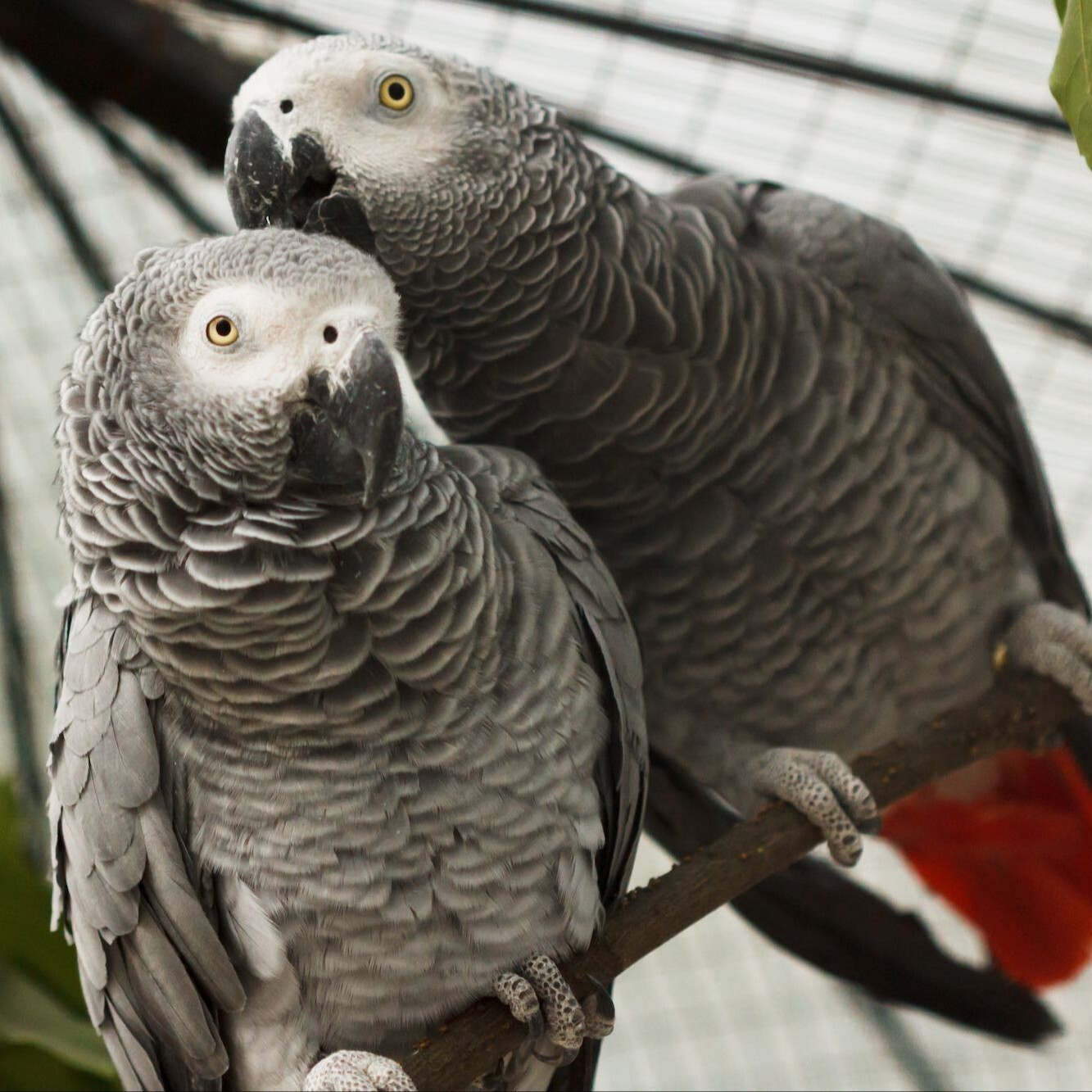
Under the CortexTalking With Birds: The Fascinating World of Avian IntelligenceCan birds be as intelligent as chimpanzees or dolphins? Can they communicate and use language like a child would? Can they even outsmart undergraduate students? A line of research started more than 40 years ago continues to reveal new findings about parrots’ intelligence and even their ability to use English speech to communicate with humans.
Irene Pepperberg, an APS Fellow and adjunct research professor at Boston University, pioneered the study of bird cognition back in the 70s and still studies the cognitive and communicative abilities of grey parrots, comparing their abilities with those of great apes, dolphins, and young...
2022-09-2928 min
Under the CortexThe September Collection: New Technology Can Be Scary, Why to Stop Worrying and Love the Eco-Apocalypse, and Much MoreWhat determines how we feel about new technologies? Can an existential approach help us deal with apocalyptic fears about the climate crisis? And does having brothers or sisters influence our personality? New research in APS journals explores these questions and much more, including what makes a joke funny and how social support can prevent depression in breast-cancer survivors. In this episode of Under the Cortex, cognitive psychologist Ludmila Nunes and her colleague Amy Drew, APS’s Director of Publications, discuss five of the most interesting new articles from the APS journals.
Learn more at psychologicalscience.org.
2022-09-2225 min
Under the CortexAttitudes Improve for Sex and Race. Disability and Age? Not So MuchHow did attitudes about race, sexuality, age, or disability change in the last decade or so? In the United States, it appears that bias decreased across all explicit attitudes, but implicit biases decreased only for certain attitudes, including sexuality and race. Moreover, biases have remained stable for variables such as age or disability. What can these patterns of change tell us about our society and the different nature of certain attitudes?
Researchers examined more than 7 million implicit and explicit tests for an article published recently in Psychological Science. In this conversation, APS’s Ludmila Nunes speak...
2022-09-1522 min
Under the CortexSelf-Injury: Can the Internet Play a Positive Role?Anywhere between 17% and 38% of adolescents and young adults engage in behaviors of nonsuicidal self-injury, defined as “the deliberate, self-inflicted damage of body tissue without suicidal intent.” These behaviors, which might include cutting, scratching, head-banging, and burning, sometimes help people cope with negative emotions or even serve to keep them from attempting actual suicide, but they can also pose real harms.
A recent study in Clinical Psychological Science explores the role that online groups and e-communities can play in reducing the harm posed by nonsuicidal self-injury and in contributing to more effective treatments of this behavior. To speak a...
2022-09-0816 min
Under the CortexLove Lets Us Learn: Psychological Science Makes the Case for Policies That Help ChildrenAdverse early experiences, quite literally, can kill. In her latest presidential column for the APS Observer, APS President Alison Gopnik, who studies learning and development at the University of California, Berkeley, writes about the growing moral and scientific case for early childhood policies that can mitigate or prevent the effects of experiences such as poverty, physical or emotional neglect and abuse, and mental illness, addiction, and violence in the home. She reads her column in this episode.
2022-09-0117 min
Under the CortexUnderweight and Overexposed: How Women’s Perceptions of Thinness Are DistortedHow people judge others’ bodies might be influenced by what they are used to seeing in magazines, TV, or social media. Recent research suggests that women’s judgments about other women’s bodies can be biased by an overrepresentation of thinness.
In a recent study published in Psychological Science, young women were more likely to judge bodies they had previously considered “normal” as overweight when they were repeatedly exposed to samples of computer-generated female bodies that became increasingly thin as a group. in which the percentage of thin bodies increased gradually. The lead author, Sean Devine, a graduate st...
2022-08-2516 min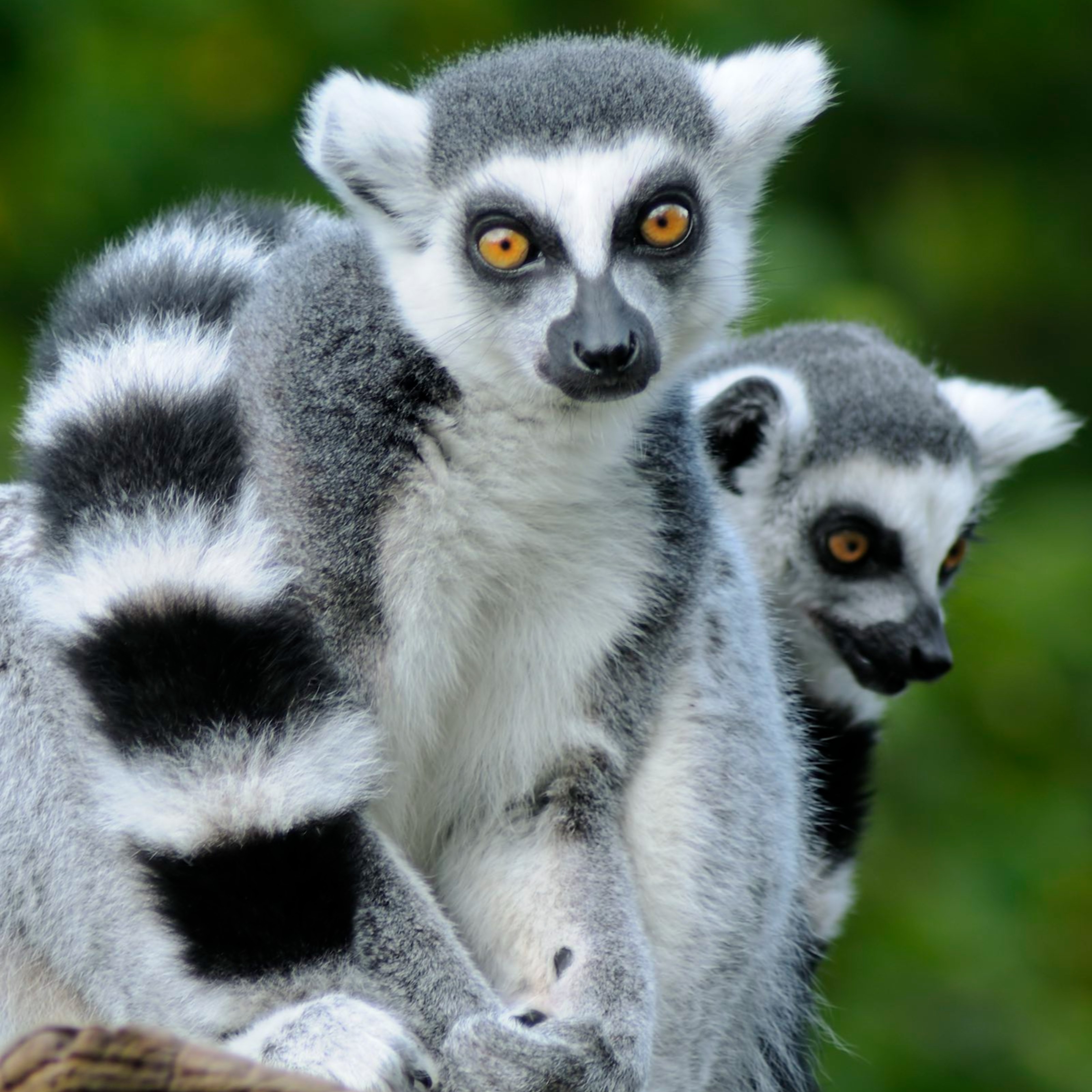
Under the CortexThe August Collection: Attitude Changes, Cognition in Lemurs, and Much MoreHow have our biases and attitudes changed in the last decade? Are there sex or gender differences in verbal skills? And do the impressions of personality we form from someone’s face depend on our culture? New research in APS journals explored these questions and much more, including ADHD, and cognitive control in lemurs. In this episode of Under the Cortex, cognitive psychologists Ludmila Nunes and Andy DeSoto discuss five of APS’s most interesting new articles.
APS members get advance notice of all new research through our This Week in Psychological Science newsletter and may access...
2022-08-1822 min
Under the CortexA Paradox in the Field: Mental-Health Disorders Among PsychologistsIt’s been estimated that at least one third of the population will experience mental disorders and difficulties in their lifetimes, from anxiety to depression. Those affected can be helped by people working in applied fields of psychological science, such as clinical psychology, counseling, or school psychology. But what do we know about the prevalence of mental-health difficulties among psychological scientists themselves—that is, among the same professionals who seek to understand and alleviate suffering in others due to mental disorders?
To speak about mental health among psychologists and paths for future research, APS member Sarah Victor, a cli...
2022-08-0820 min
Under the CortexThe July Collection: Five Research BriefsWhat gives away a deceitful 911 caller who might have committed a crime? From a cross-cultural spin on the classic “marshmallow experiment” to deceitful 911 homicide calls to what true smiles do, new research in APS journals explores a broad range of topics, including visual memory and success. In this episode of Under the Cortex, APS’s Ludmila Nunes and Andy DeSoto—both of whom are psychological scientists themselves—discuss five of our most interesting new research papers.
APS members get advance notice of all new research through our This Week in Psychological Science newsletter and may access the complete arch...
2022-07-2023 min
Under the CortexThe New Riddle of the Sphinx: Life History and Psychological ScienceLife history—the transformations that occur throughout the lifespan—shapes the human mind. This idea cuts across all the subdisciplines of psychology and underlies the answers to the two main questions that drive psychological scientists: What is universal about human minds and what is special and particular about specific minds? In her inaugural presidential column for the APS Observer, APS President Alison Gopnik, who studies learning and development at the University of California, Berkeley, writes about life history and psychological science. In this episode, she reads her column, which you can find here.
2022-06-3017 min
Under the CortexI Don’t Care If It’s Fake News, I Believe ItWhile the past several decades can rightly be called the “information age,” the rise of social media platforms makes is seem like the past few years could be considered the misinformation age. The viral nature of alternative facts, rumors, and planned disinformation campaigns has taken its toll on global politics, the economy, and healthcare. If only we could be told when we were reading “misinformation” that might just solve our problems! Or perhaps not. Does knowing that a news story is false really inoculate us against its misinformation?
Taking a new look at misinformation is "Max” Bai, a post-doc...
2022-06-2316 min
Under the Cortex2022 Spence Award Mini Episode: Brian Anderson and Habit-Reinforcing BehaviorThe winners of the 2022 APS Janet Taylor Spence Award for Transformative Early Career Contributions represent some of the brightest and most innovative young psychological scientists in the world. In a series of mini-episodes, Under the Cortex talks with each winner about their research and goals.
Today we hear from Brian Anderson (Texas A&M University) about his research on what captures human attention and how that influences behavior.
Learn more about our sponsor by visiting https://macmillanlearning.com/psychsessions.
2022-06-1612 min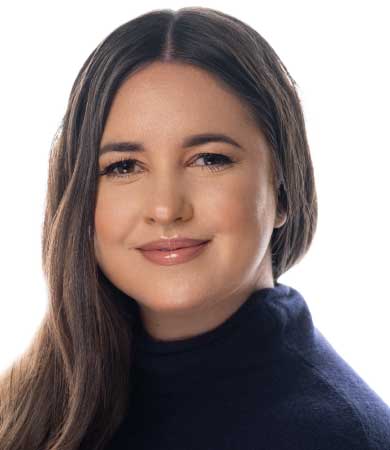
Under the Cortex2022 Spence Award Mini Episode: Patricia Lockwood and the Foundations of Social LearningThe winners of the 2022 APS Janet Taylor Spence Award for Transformative Early Career Contributions represent some of the brightest and most innovative young psychological scientists in the world. In a series of mini-episodes, Under the Cortex talks with each winner about their research and goals.
Today we hear from Patricia Lockwood (University of Birmingham), who is researching the foundations of social learning and decision-making throughout life.
Learn more about our sponsor by visiting https://macmillanlearning.com/psychsessions.
2022-06-0807 min
Under the CortexDelusion and the Uses of Not Being RationalBeing rational is an often-admired quality. After all, a rational mind allows us to calmly and carefully evaluate situations based on the facts rather than letting emotions cloud our thinking. There are times, however, when irrational thought has its advantages. Shedding some light on the human propensity for delusion thinking is psychologist, writer, and APS Fellow and Charter Member Stuart Vyse, who has published a new book “The Uses of Delusion: Why It’s Not Always Rational to Be Rational.”
Learn more about our sponsor by visiting https://macmillanlearning.com/psychsessions.
2022-05-0319 min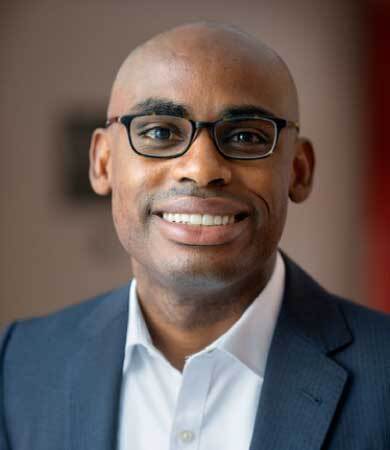
Under the Cortex2022 Spence Award Mini Episode: Neil Lewis Jr. on the Unequal Nature of SocietyThe winners of the 2022 APS Janet Taylor Spence Award for Transformative Early Career Contributions represent some of the brightest and most innovative young psychological scientists in the world. In a series of mini-episodes, Under the Cortex talks with each winner about their research and goals.
Today, Neil Lewis Jr. (Cornell University) talks about how the unequal nature of the society that we live in affects the way we think.
2022-04-2707 min
Under the Cortex2022 Spence Award Mini Episode: Human to Nonhuman Interactions with Kai Chi (Sam) YamThe winners of the 2022 APS Janet Taylor Spence Award for Transformative Early Career Contributions represent some of the brightest and most innovative young psychological scientists in the world. In a series of mini-episodes, Under the Cortex talks with each winner about their research and goals.
Today, Kai Chi (Sam) Yam (National university of Singapore) tells us about his research on human-nonhuman communication.
Learn more about our sponsor by visiting https://macmillanlearning.com/psychsessions.
2022-04-1408 min
Under the CortexTraffic Stops and Race: Police Conduct May Bend to Local BiasesNew research covering tens of millions of U.S. traffic stops found that Black drivers were more likely than White drivers to be stopped by police in regions with a more racially biased White population. Pierce Ekstrom, a researcher at the University of Nebraska and lead author on one of two concurrent papers in the journal Psychological Science talks about how these studies shed new light on how countywide attitudes toward race correlate with local policing. Read the news release and watch the video segment here.
2022-03-3015 min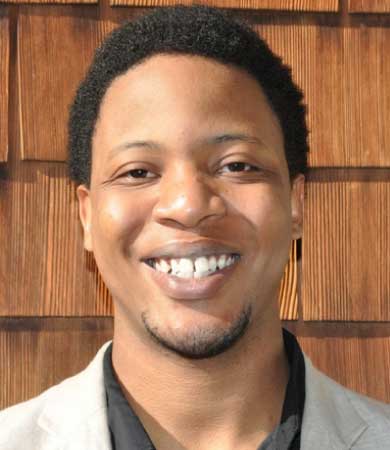
Under the Cortex2022 Spence Award Mini Episode: Jason Okonofua and the Power of EmpathyThe winners of the 2022 APS Janet Taylor Spence Award for Transformative Early Career Contributions represent some of the brightest and most innovative young psychological scientists in the world. In a series of mini-episodes, Under the Cortex talks with each winner about their research and goals.
Today, Jason Okonofua (University of California, Berkeley) tells us about his research on empathy and social-psychological processes that contribute to inequality.
2022-03-2909 min
Under the Cortex2022 Spence Award Mini Episode: Investigating Complex Brain ProcessesThe winners of the 2022 APS Janet Taylor Spence Award represent some of the brightest and most innovative young psychological scientists in the world. In a series of mini-episodes, Under the Cortex talks with each winner about their research and goals.
Today Oriel FeldmanHall (Brown University) tells us about her research to disentangle the cognitive and neural processes behind the complex choices that form the basis of human social behavior.
2022-03-2206 min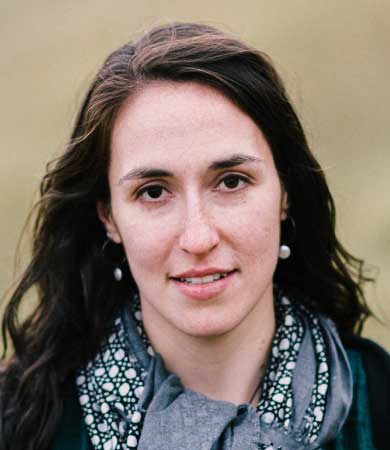
Under the Cortex2022 Spence Award Mini Episode: How People Manage Their EmotionsThe winners of the 2022 APS Spence Award represent some of the brightest and most innovative young psychological scientists in the world. In a series of mini-episodes, Under the Cortex talks with each winner about their research and goals.
Today we hear from Brett Ford (University of Toronto) who is examining the basic science and health implications of how individuals think about and manage their emotions.
2022-03-1807 min
Under the CortexMini Episode: How We Internalize DisordersThe winners of the 2022 APS Spence Award represent some of the brightest and most innovative young psychological scientists in the world. In a series of mini-episodes, Under the Cortex talks with each winner about their research and goals.
Today we hear from Antonia Kaczkurkin (Vanderbilt University) who is researching the neurobiological mechanisms of how we internalize disorders.
2022-03-1508 min
Under the CortexConstellations Across Cultures: How Our Visual Systems Pick Out Patterns in the Night SkyThere are hundreds of billions of stars in our galaxy, though only about 5,000 are visible to the naked eye. Under ideal conditions and far from city lights, you can see about half of them on any given night. Cultures the world over see similar shapes in the night sky--the Big Dipper, Orion, and the Pleiades are just a few. New research, as discussed by Charles Kemp and published in the journal Psychological Science, reveals that our visual processing system may explain the striking commonality of constellations across cultures. Read the transcript here.
Image credit: Milky Way from t...
2022-03-0913 min
Under the CortexFreedom vs Security: Can We Find the Right Balance?During the pandemic and when other natural disasters strike, governments may curtail certain liberties in an effort to save lives. These compromises also happen in everyday life, from seatbelt laws to food-safety regulations. A paper published in Perspectives on Psychological Science, however, suggests that restricting freedoms may have other unintended negative consequences for behavior and health. One of the authors, Nathan Cheek with Princeton University, explains how there may be a balance that can be achieved and how psychological science could help policymakers promote public health, safety, and well-being in times of crisis.
To read t...
2022-02-2318 min
Under the CortexDebunking Four Common Myths of Psychological ScienceYou hear them so often they must be true! Or are they? Popular myths about the human brain include old chestnuts like people only use 10% of their brains, too much sugar sends kids into hyperdrive, and there are left-brain and right-brain personalities.
How did these beliefs get started and why are they so widespread? Charles Blue and Ludmila Nunes take a skeptical deep dive to explore some the most common myths about psychological science and the brain.
These are just some of the facts and debunking you'll find on the Association for Psychological Science's Myths and...
2022-02-0216 min